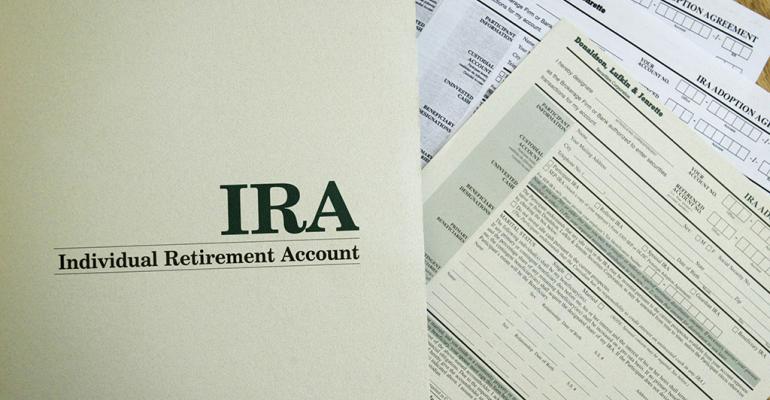Without professional assistance, it’s easy for an individual to forego updating an essential element of their estate plan: beneficiary designations. Designating a spouse as beneficiary enables the surviving spouse to roll over inherited benefits to their own retirement plan from an individual retirement account or other retirement plan. Depending on the facts, a rollover of benefits may offer significant tax advantages to the surviving spouse, including: (1) a slower rate of required minimum distributions (RMDs), (2) the ability to start a new life expectancy payout after the surviving spouse’s later death, and (3) a later starting date for RMDs if the plan participant was older than the surviving spouse. After a plan participant dies, it’s too late to make such a beneficiary designation. The IRS, however, has recently ruled that a surviving spouse may still be able to take advantage of the benefits of a spousal rollover even when no beneficiary designation was effectively completed.
Decedent Failed to Name Beneficiary
In PLR 201618011 (released April 29, 2016), a surviving spouse wished to roll over an IRA when the decedent failed to designate a beneficiary. The plan document that controlled the IRA at issue provided that in cases in which no beneficiary is designated, the custodian would distribute the balance of the IRA to the decedent’s estate. The surviving spouse, named as executor and sole beneficiary under the decedent’s will, intended to distribute the IRA at issue to himself and, within 60 days of receipt, roll over the proceeds of the decedent’s IRA into an IRA in his own name.
Internal Revenue Code Section 408(d) states the general rule for income taxation of IRA distributions: Unless an exception exists elsewhere in the subsection, the amounts paid or distributed from an IRA are includible in gross income from the payee or distributee, as the case may be. One such exception is for rollover contributions under IRC Section 408(d)(3). Although Section 408(d)(3)(C) denies tax-free rollover treatment for inherited IRAs, the term inherited IRA doesn’t include an IRA inherited by a surviving spouse. By negative implication, a surviving spouse may take advantage of a tax-free rollover of IRA benefits so long as the spouse meets the other IRC requirements found in Sections 408(d)(3)(A) (the entire amount received must be paid into the rollover IRA not later than the 60th day after the payment or distribution is received) and 408(d)(3)(B) (taxpayer must not have had another tax-free rollover within the one-year period ending on the date the payment or distribution is received).
If a decedent’s IRA proceeds pass through a third party, such as a trust or estate, and are then distributed to the decedent’s surviving spouse, the spouse generally is treated as acquiring them from the third party and not from the decedent’s IRA. Treasury Regulation Section 1.408-8, A-5(a) states that to receive tax-free rollover treatment afforded to a surviving spouse under IRC Section 408(d)(3), the spouse must be the sole beneficiary of the IRA and have an unlimited right to withdraw amounts from the IRA. Thus a surviving spouse can’t generally roll over benefits received from a third party.
Exception Granted
When no third party could prevent a surviving spouse from receiving the proceeds of the deceased spouse’s IRA, the IRS reasoned that the surviving spouse should still be able to roll over the proceeds of the decedent’s IRA when the proceeds pass through the estate. Therefore, the IRS concluded the surviving spouse could roll over the decedent’s IRA proceeds when (1) the decedent’s estate is the beneficiary of a decedent’s IRA proceeds, and (2) the decedent’s surviving spouse is the sole executor of the estate and the sole beneficiary of the estate in which the IRA proceeds pass through. While the estate was the de facto payee, the IRS in this case effectively looked though the estate and determined the surviving spouse was the payee for purposes of Section 408(d)(3)(C). As a result, the new IRA wouldn’t be deemed an inherited IRA as the payee was the surviving spouse and wouldn’t be prohibited from receiving the tax-free rollover treatment afforded to rollovers under Section 408(d)(3).
Beacon of Hope?
PLR 201618011 may be seen as relief to some surviving spouses—especially those named as beneficiaries under “I Love You” wills or similar documents and whose spouses didn’t complete beneficiary designation forms. While it may offer a glimpse into the direction the IRS would lean in future cases, no taxpayer should rely on a PLR in determining their tax liability. In truth, these facts should highlight the need for professional assistance in completing and implementing estate plans. The negative tax implications may be too great to forego professional guidance.





